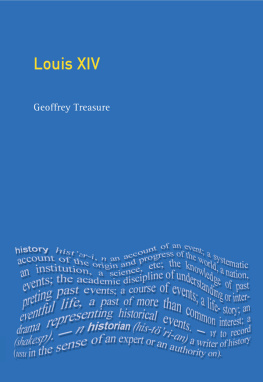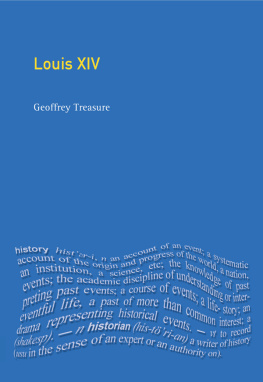

This edition is published by PICKLE PARTNERS PUBLISHINGwww.pp-publishing.com
To join our mailing list for new titles or for issues with our bookspicklepublishing@gmail.com
Or on Facebook
Text originally published in 1953 under the same title.
Pickle Partners Publishing 2016, all rights reserved. No part of this publication may be reproduced, stored in a retrieval system or transmitted by any means, electrical, mechanical or otherwise without the written permission of the copyright holder.
Publishers Note
Although in most cases we have retained the Authors original spelling and grammar to authentically reproduce the work of the Author and the original intent of such material, some additional notes and clarifications have been added for the modern readers benefit.
We have also made every effort to include all maps and illustrations of the original edition the limitations of formatting do not allow of including larger maps, we will upload as many of these maps as possible.
THE SPLENDID CENTURY:
LIFE IN THE FRANCE OF LOUIS XIV
BY
W. H. LEWIS
TABLE OF CONTENTS
Contents
ACKNOWLEDGMENTS
The author desires to thank the Oxford University Press for permission to reprint the chapter entitled, The Galleys, which originally appeared under the title The Galleys of France in Essays presented to Charles Williams , Oxford University Press, 1947.
FOREWORD
THIS book does not pretend to offer a comprehensive survey of the Grand Sicle , and, if long-winded titles were still the fashion, it might with more accuracy have been called Some aspects of French life in the days of Louis XIV.
I have been forced to make it selective rather than comprehensive for two reasons: firstly, had I written on every aspect of the period which interests me, I should have swollen the book to unmanageable proportions: and secondly, because there are many achievements of the age with which I am not competent to deal. In the first category of omissions are chapters on the French Navy, on the Parlements and their struggles with the Crown, and on the Diplomatic and Civil Services; there should, I know, have been something on Hugues de Lyonne and his successors, those unscrupulously brilliant diplomatists who had so much to do with making Louis XIV the Grand Monarque , and on Colbert, Louis greatest civil servant, who worked with such unavailing energy to give France the planned economy of a modern totalitarian state.
Within the second category fall Descartes and his world, Poussin, Claude and the artists in general, Le Ntre, the Capability Brown of his day, father of formal landscape gardening, Mansart, the creator of Versailles (and little though he dreamt of it, of the Euston Hotel).
For the omissions in the first category, I apologize; whilst as regards those in the second, I feel that it would be the height of impudence on my part to suppose that what I would have found tedious to write, anyone else would have found interesting to read.
Lastly, a word on the baffling problem of money. The value of French money fluctuated considerably during the century, and there is the further complication that Europe is now in a period of unstable exchange. The first difficulty I have dealt with by striking an average for the value of French currency throughout the reign, and the second by translatingvery approximatelyinto the rates of exchange ruling. The result does not satisfy me, but only a monetary expert could find the right solution. Here, however, is a table which may give the reader a rough idea of the basis of my calculations:
1 livre (silver) = 1 franc (17 th . Cent.) = 1 franc (1914) = $ .20 (1914)
6 livres (silver) = 1 crown (silver) = 6 francs (1914) = $ 1.22 (1914)
4 crowns (silver) = 1 louis (gold) =24 francs (1914) = $ 4.87 (1914)
W. H. LEWIS
Headington Quarry,
Oxford.
nd May 1953.
ITHE KING
WE know both too much and too little about Louis XIV ever to succeed in capturing the whole man. In externals, in the mere business of eating, drinking, and dressing, in the outward routine of what he loved to call the mtier du roi , no historical character, not even Johnson or Pepys, is better known to us; we can even, with the aid of his own writings, penetrate a little of the majestic faade which is Le Grand Roi But when we have done so, we see as in a glass darkly. Hence the extraordinary number and variety of judgments which have been passed upon him; to one school, he is incomparably the ablest ruler in modem European history; to another, a mediocre blunderer, pompous, led by the nose by a succession of generals and civil servants; whilst to a third, he is no great king, but still the finest actor of royalty the world has ever seen. Courtesy, reticence, and an almost inhuman tranquillity of demeanour, are the qualities in Louis which strike us at the first glance: the latter so constant that when on a certain day he speaks roughly to his coachman, usually a prime favourite, his entourage correctly deduces from this fact that a serious crisis has arisen. We never catch him off his guard or surprise his secrets: whether we meet the taciturn, faintly bored Louis of the private apartments, or the Sun-King whose terrifying majesty made so deep an impression on so many observers.
But let us begin at the beginning.
Louis XIV, son of Louis XIII (1601-43) and of his Spanish Queen, Anne of Austria (1601-67), was born in the chteau of St. Germain at two oclock on the morning of 5 th September 1638, the first child of parents who hated each other, and who had been married for twenty-three years. The birth was hailed as a miracle, the little Dauphin was given the name of Dieudonn, the wine ran free, and even the hungry were fed.
From his cold-blooded, shifty, suspicious father the child seems to have inherited nothing but a love of music and an interest in the minutiae of army administration, whilst to his mother he owed a magnificent constitution and his indomitable pride.
From the first, Louis was a solemn child, very well aware of who he was, and what he was to be. His earliest recorded utterance is characteristic; on the 21 st April 1643, being then not five years old, he was taken to the bedside of his dying father. Who is it? said the King. Louis XIV, replied his son. He had anticipated his inheritance by some three weeks only; on 14 th May Louis XIII died. His will, under which the Queen-Mother would have been a puppet, was set aside by the Parlement, and Anne found herself Regent of France with Jules Mazarin (1602-61) as her Prime Minister. And perhaps as something very much more, for the relationship between Anne of Austria and Mazarin remains obscure to this day. Did the Cardinal make his position safe for life by marrying the Queen-Mother? There was nothing to prevent it, for he was never a priest, and there is much circumstantial evidence in favour of the supposition. What is certain is that this softly smiling, humble, deferential man, this piece of iron painted to look like a lath, acquired a complete ascendancy over the Regent, and treated the young King in a manner which is only to be explained on the assumption that he was his step-father. In the royal family the Cardinals word was absolute and final: and whilst Mazarin was piling up a huge private fortune, the King, and even the Regent, had to petition him, often unsuccessfully, for a little pocket money for their daily needs. Here, at the very apex of the pyramid, one found a petit bourgeois mnage tyrannically controlled by an Italian Harpagon.
Next page











